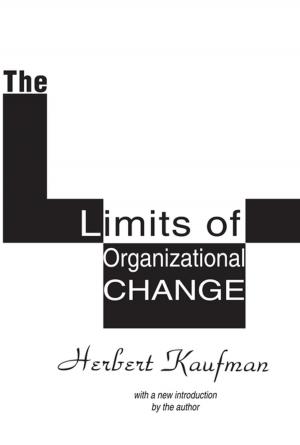Reconfiguring Citizenship
Social Exclusion and Diversity within Inclusive Citizenship Practices
Nonfiction, Social & Cultural Studies, Social Science, Social Work, Cultural Studies, Ethnic Studies| Author: | Mehmoona Moosa-Mitha | ISBN: | 9781317070443 |
| Publisher: | Taylor and Francis | Publication: | March 23, 2016 |
| Imprint: | Routledge | Language: | English |
| Author: | Mehmoona Moosa-Mitha |
| ISBN: | 9781317070443 |
| Publisher: | Taylor and Francis |
| Publication: | March 23, 2016 |
| Imprint: | Routledge |
| Language: | English |
Citizenship as a status assumes that all those encompassed by the term 'citizen' are included, albeit within the boundaries of the nation-state. Yet citizenship practices can be both inclusionary and exclusionary, with far-reaching ramifications for both nationals and non-nationals. This volume explores the concept of citizenship and its practices within particular contexts and nation-states to identify whether its claims to inclusivity are justified. This will show whether the exclusionary dimensions experienced by some citizens and non-citizens are linked to deficiencies in the concept, country-specific policies or how it is practised in different contexts. The interrogation of citizenship is important in a globalising world where crossing borders raises issues of diversity and how citizenship status is framed. This raises the issue of human rights and their protection within the nation-state for people whose lifestyles differ from the prevailing ones. Besides highlighting the importance of human rights and social justice as integral to citizenship, it affirms the role of the nation-state in safeguarding these matters. It does so by building on Indigenous peoples' insights about linking citizenship to connections to other people and the environment and arguing for the inalienability and portability of citizenship rights guaranteed collectively through international level agreements. These issues are of particular concern to social workers given that they must act in accordance with the principles of democracy, equality and empowerment. However, citizenship issues are often inadequately articulated in social work theory and practice. This book redresses this by providing social workers with insights, knowledge, values and skills about citizenship practices to enable them to work more effectively with those excluded from enjoying the full rights of citizenship in the nation-states in which they reside.
Citizenship as a status assumes that all those encompassed by the term 'citizen' are included, albeit within the boundaries of the nation-state. Yet citizenship practices can be both inclusionary and exclusionary, with far-reaching ramifications for both nationals and non-nationals. This volume explores the concept of citizenship and its practices within particular contexts and nation-states to identify whether its claims to inclusivity are justified. This will show whether the exclusionary dimensions experienced by some citizens and non-citizens are linked to deficiencies in the concept, country-specific policies or how it is practised in different contexts. The interrogation of citizenship is important in a globalising world where crossing borders raises issues of diversity and how citizenship status is framed. This raises the issue of human rights and their protection within the nation-state for people whose lifestyles differ from the prevailing ones. Besides highlighting the importance of human rights and social justice as integral to citizenship, it affirms the role of the nation-state in safeguarding these matters. It does so by building on Indigenous peoples' insights about linking citizenship to connections to other people and the environment and arguing for the inalienability and portability of citizenship rights guaranteed collectively through international level agreements. These issues are of particular concern to social workers given that they must act in accordance with the principles of democracy, equality and empowerment. However, citizenship issues are often inadequately articulated in social work theory and practice. This book redresses this by providing social workers with insights, knowledge, values and skills about citizenship practices to enable them to work more effectively with those excluded from enjoying the full rights of citizenship in the nation-states in which they reside.















